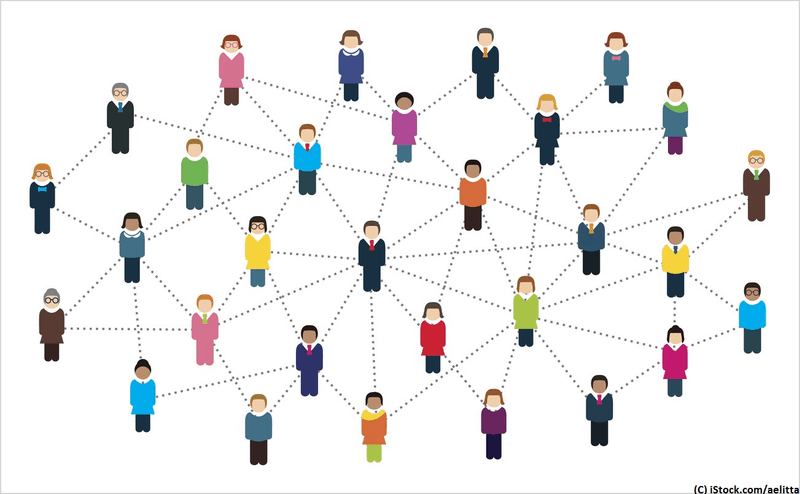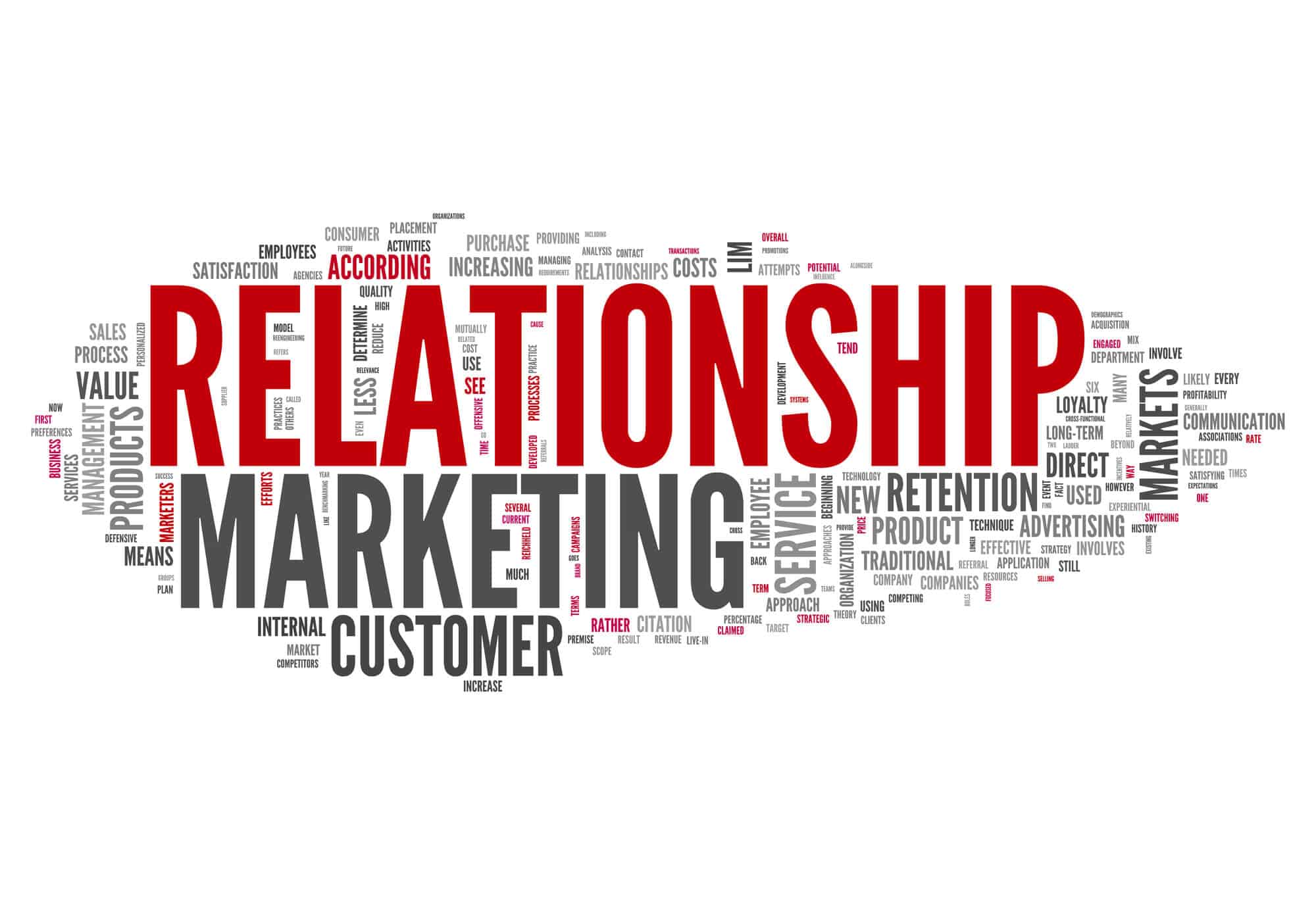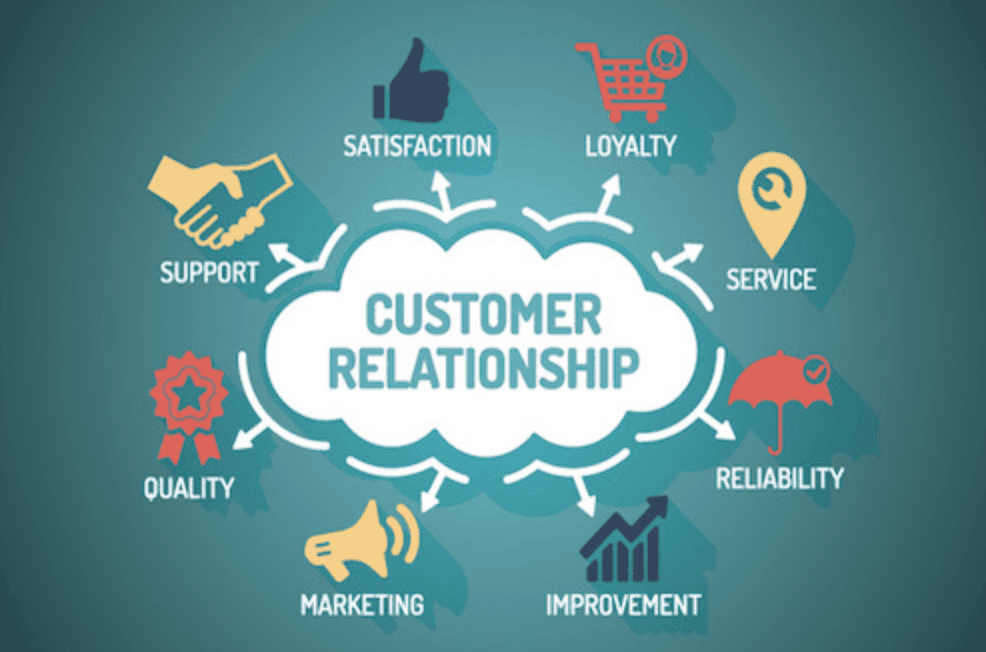What is Relationship Marketing?
Relationship marketing is a set of marketing strategies whose goal is to create long-term relationships and engagement between the organization and its customers or prospects. Unlike traditional marketing campaigns that measure their success by lead generation or new conversions, the success of a relationship marketing strategy is based on the length of relationships with customers, positive interactions between customers and the business, customer retention and churn rates.

Relationship Marketing vs Transactional Marketing: What’s the Difference?
Transactional marketing and relationship marketing represent two different strategies that organizations use to interact with and engage their customers.
The transactional marketing model focuses on generating the highest possible volume of sales for the lowest cost. Instead of working to establish a relationship with the customer that promotes retention and brand loyalty, transactional marketing focuses on the four traditional elements of marketing to appeal to consumers:
- Product – Designing and delivering products that satisfy the needs and desires of consumers
- Pricing – Pricing the product in a way that entices consumers to buy while remaining profitable for the company
- Placement – Building a robust distribution network for the product that makes it easy and convenient to purchase
- Promotion – Promoting the product to increase its visibility and appeal, including advertising, endorsements, social proof, etc.
While the transactional marketing strategy focuses on generating the highest possible amount of sales in the short term, relationship marketing is all about building long-term customer relationships that result in a successful and mutually beneficial partnership with ongoing exchanges of value.
Companies that focus on relationship marketing take the time to form individual relationships with each prospect. These relationships are carefully nurtured as the prospect goes from initial brand awareness to making their first purchase. Once the prospect becomes a customer, the customer relationship is still just getting started. The emphasis on individual customer relationships instead of mass appeal and overall sales volume is what differentiates relationship marketing from transactional marketing.

Relationship Marketing and Target Market Size
If you are marketing an international brand of soft drinks, your target market includes everybody that is thirsty. Instead of building relationships with each individual prospect to drive brand loyalty, it makes more sense to drive sales with transactional marketing strategies: building a large distribution network, advertising heavily and making the product as delicious and cheap as possible. Relationship marketing is usually prohibitively expensive for companies that sell mass-market products directly to the consumer.
Relationship marketing is more effective in industries where there are a limited number of prospective customers in the target market. For example, an organization that sells airplane components might have fewer than 50 prospective customers in the United States, with each one representing potentially millions of dollars in revenue per year. When the pool of prospects is relatively small, establishing great relationships is essential to staying in business over the long term.

What are the Benefits of Relationship Marketing?
Increased Customer Lifetime Value (CLV)
The main goal of relationship marketing is to reduce customer churn and increase retention through activities that drive brand loyalty. Customer retention activities have a multi-faceted effect on customer lifetime value. A customer that stays with you for longer will purchase more of your products and services, and you’ll also have the opportunity to up-sell to them and collect referrals that can lead to more business. On an organizational level, increasing your customer lifetime value gives you the flexibility to spend more on customer acquisition and drive faster growth.
Organizational Focus on Customer Success
Some organizations get too focused on meeting KPIs and forget about the most important success factor: keeping customers happy. Businesses that integrate relationship marketing into their core processes are constantly organizing their activities around customer satisfaction and working to enhance the customer experience in every interaction. This creates opportunities to achieve business growth by serving your existing customers instead of always having to acquire a new one.
Marketing and Advertising Cost Reduction
Satisfied customers will sing your praises for free, potentially drumming up new business through referrals and word-of-mouth. In a small industry niche, delivering a great customer experience can create a lot of buzzes and earn you more customers for very little cost.
How Do Businesses Do Relationship Marketing?
All kinds of businesses use relationship marketing techniques to engage their customers and promote brand loyalty. Here are just some of the techniques that marketers use to build great relationships with their customers.
Exceptional Customer Service
Relationship marketing must always be underpinned by exceptional customer service. Every other method of relationship-building with your customer will fail if you’re difficult to work with, unresponsive or can’t follow through on your commitments. Exceptional customer service means meeting your obligations as a vendor and ensuring that customers have what they need to succeed in their partnership with your organization.
Loyalty Programs
Some organizations offer loyalty programs for existing customers that include discounts or incentives for repeat purchases. Loyalty programs can be effective for B2B or B2C organizations.
Collecting Feedback
Collecting feedback from your customers is a great way to keep them engaged with what you’re doing and strengthen your relationship. Your customers can tell you where they’re getting the most value from your product or service and what you can do to improve (and potentially attract new customers).
Offering Incentives
Relationship marketing can include special incentives for long-term customers or discounts for customers that refer their friends or colleagues to work with you.

When Should You Use Relationship Marketing?
There are five situations where you should consider using relationship marketing to acquire and retain customers.
When the sales cycle is long, you will need to build a strong relationship with the customer as they go through the purchasing process. You’ll also want to invest in customer retention activities due to the high customer acquisition costs associated with long sales cycles.
When there are few target prospects in your industry, relationship marketing is necessary to ensure that you keep your customers happy and prevent them from leaving.
When the customer lifelong value is high, you can justify investing more time and money into building relationships with individual customers.
When there is a lot of competition, it is doubly important that you maintain excellent relationships with your customers to keep them loyal and prevent them from leaving you for a competitor.
When the customer depends on your support, relationship marketing is essential. If you sell a software product, the customer will depend on you for ongoing service and support. Delivering an exceptional customer experience during these interactions can create opportunities to up-sell or collect referrals.
Directive Consulting Helps Launch Your Relationship Marketing Efforts
Businesses today need to balance customer acquisition efforts that incorporate elements of transactional marketing with relationship marketing efforts geared towards customer retention.
That’s where Directive Consulting can help. Our experts use cutting-edge SEO and PPC strategies to generate new opportunities for your sales team. As we work to fill your sales funnel, you work to deliver great relationship marketing experiences that drive brand loyalty and keep your customers happy.
Are you ready to grow with us? Register for a free custom proposal and we’ll show you how.
